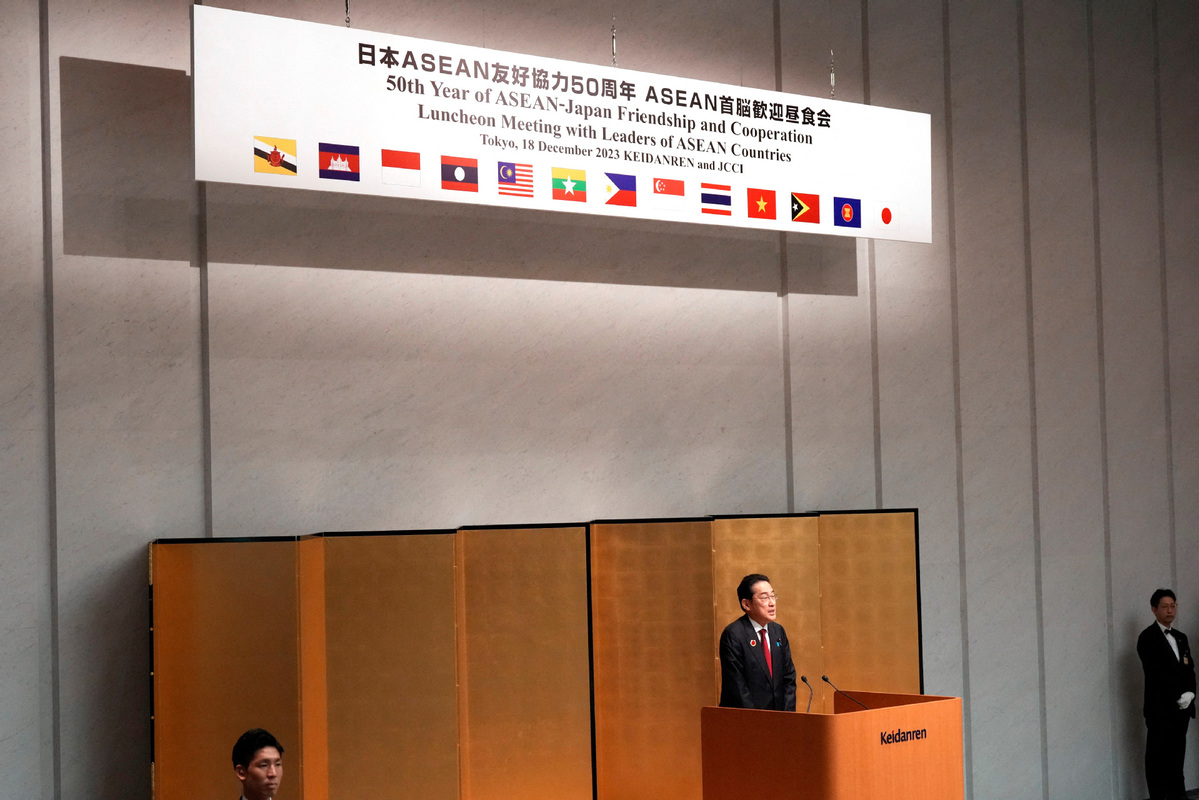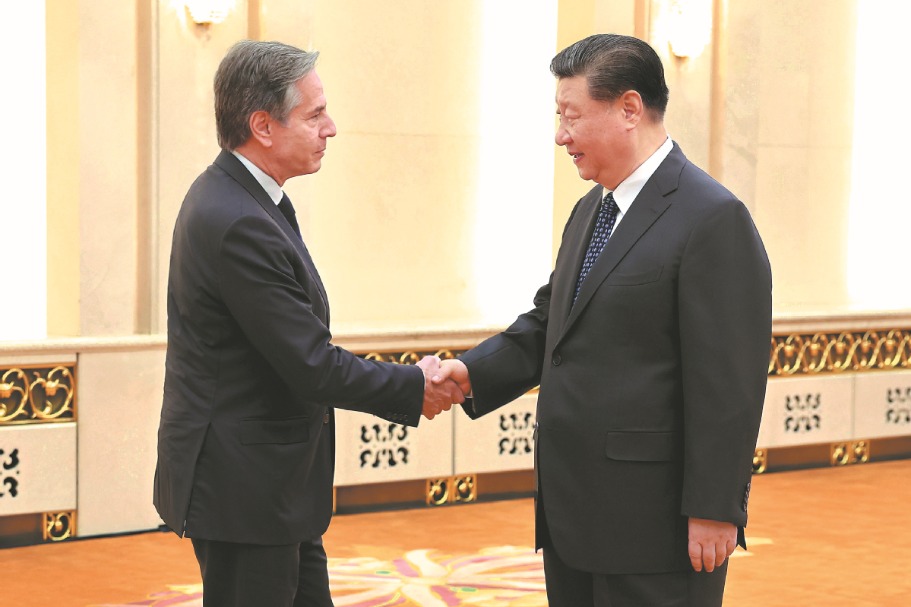Summit reveals Tokyo trying to lead ASEAN astray: China Daily editorial
chinadaily.com.cn | Updated: 2023-12-19 20:25

Although the outcome documents issued after the Commemorative Summit for the 50th Year of ASEAN-Japan Friendship and Cooperation in Tokyo on Sunday stress an "ASEAN-centered regional architecture", the gathering represents the latest attempt by Tokyo to force the bloc to accept a United States-centered order with Japan as the primary agent of the US in the region.
It is clear from the language used in the Joint Vision Statement that Tokyo has asserted itself. Multiple ASEAN leaders have on various occasions unequivocally expressed they boycott the "Indo-Pacific" concept. But not only does the document use the term "Indo-Pacific", a geopolitical concept central to Washington's China-containment strategy, but it also employs the languages of the US' discourse on upholding "democracy, the rule of law, good governance and respect for human rights and fundamental freedom".
The members of the Association of Southeast Asian Nations must be well aware what wine Tokyo has put in the bottle. It is likely that they were the reason that the document names no names and instead leaves the insinuations of unruliness pointing to the elephant between the lines.
Despite this, the contents of the Joint Vision Statement and its Implementation Plan that were adopted as the outcome documents of the summit, along with the agenda that Tokyo set for the summit, serve to expose the host's intention of dragging ASEAN as a whole into the US-led clique in the region.
For instance, the Fumio Kishida government made "Partners for Peace and Stability & Regional and International Issues" the most important of the four agenda items for the meeting — the three others were Japan's aid to ASEAN, youth exchanges and economic and trade cooperation.
Although the ASEAN member states no doubt pinned high hopes on the economic and trade cooperation section, as Japan can do a lot to help promote common development of the region, the three topics the Kishida government set for that part of the agenda were a bilateral consensus on climate change, ASEAN's appreciation of Japan's assistance and their joint wishes for more initiatives in the future.
Apparently, Tokyo's main aim for the summit was to forge closer security partnerships with the ASEAN members in a bid to secure the use of military bases for Japan Self-Defense Forces.
As Foreign Ministry spokesperson Mao Ning said, China always believes that any cooperation among countries in the region should seek to enhance mutual trust, promote common development and be conducive to regional peace and stability, and should not be targeted at third parties.
In that light, Japan should increase its input to promote unity and common development of the region rather than engage in geopolitical manipulation and calculation that create division and mistrust.
























